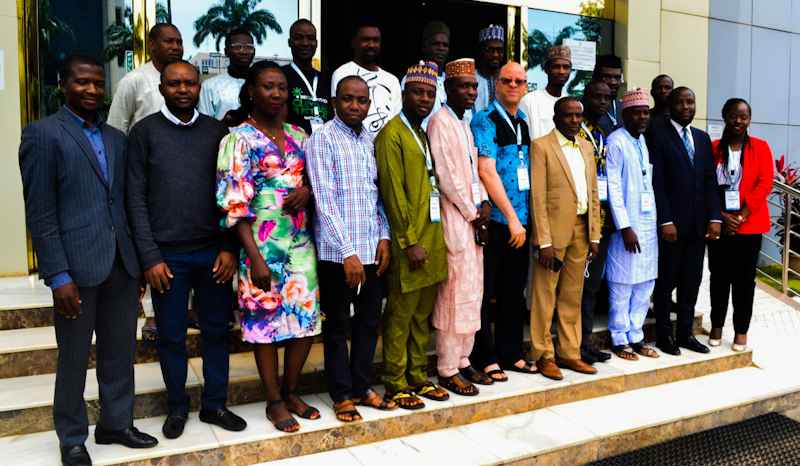By Josephine Miliza.
Nigeria has made progress in adopting and using mobile phones and the Internet. It has a growing telecommunication industry with a strong presence of major operators, middle-scale Internet Service Providers and established industry regulators.
According to the Nigerian Communication Commission, the country’s broadband penetration as of June 2022 is 44.30%, with more than eighty-four million internet subscriptions contributing 12.61% of the nation’s Gross Domestic Product (GDP).
However, a large population needs to be connected and risks being excluded from the benefits of the Internet.
In Nigeria, as in many other countries, technology rollout is market driven. This means that companies are willing to invest in infrastructure for connectivity only in areas where profit is assured. They are unlikely to invest in marginalised communities or communities that are sparsely populated, where the telecom operators cannot support profitability.
ITU-APC-CITAD organised a three-day workshop on last-mile connectivity and community networks on 20-22 September in Abuja to support bridging the gap.
The joint workshop was held under the theme “Technology Options, Policy and Regulatory Support for Digital Inclusion in Nigeria”. It provided stakeholders with a platform to learn, explore issues and put forward recommendations for affordable access to communication, with a focus on new trends, technologies, business models, and regulations that could contribute to deploying, managing and scaling last-mile connectivity and community networks.
The workshop, which took place in Abuja, brought together 33 stakeholders, including community network organisations, telecommunication experts, Federal Ministry of Communications and Digital Economy representatives, and civil society practitioners engaged in digital inclusion projects.
Community-based organisations interested in operating local-based networks shared experiences of unique and common challenges, opportunities and solutions.
The recurring theme was the absence of telecommunication service signals in the communities. Hindrance is related to the difficulty in accessing the essential voice and Internet services required to organise and drive initiatives at the community level.
In areas with mobile connectivity, the high cost of Internet and devices contributed to the exclusion of low-income urban and rural communities. Although these organisations are willing to start community networks, the issue of licensing poses a threat as, within the current regulatory framework, these networks are not recognised.
Despite the challenges, the workshop participants identified opportunities in the shared bond between communities that engender knowledge sharing, mobilisation and joint action. The power of partnership was also at play in the perception of mobile network operators and Internet Service Providers as potential collaborators through whom community networks could gain access to backhaul and share network infrastructure.
Some of the key takeaways from the workshop:
- Advocacy and mobilisation will help advance community network initiatives. Community-based organisations should identify champions within the telecoms ecosystem that will help advance efforts to create an enabling environment for community networks.
- Creating a license category that is affordable for commercial and non for profit small-scale last-mile connectivity providers. The newly initiated Virtual Mobile Network Operator (VMNO) license indicates the possibility of deploying small-scale last-mile connectivity operators and providers as expansion partners of major operators.
- The capacity to collect, analyse and use data on infrastructure and connectivity in remote communities is essential. Leveraging and capacitating community-driven data initiatives would require training data anchors/ambassadors in communities on data collection tools and platforms.
This is a series of our publications on Community Networks.
______________________________________________________________________
Josephine Miliza is a network engineer passionate about enabling African communities to leverage digital technologies for socio-economic empowerment. Josephine is the KICTANet Africa policy coordinator for Community Networks Twitter – @Msmiliza.
![]()




